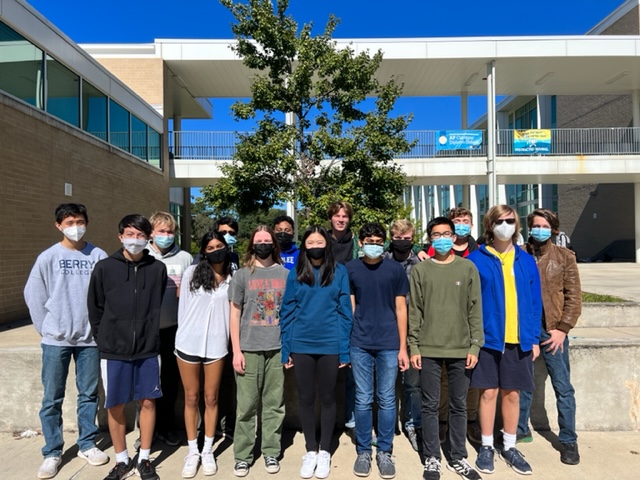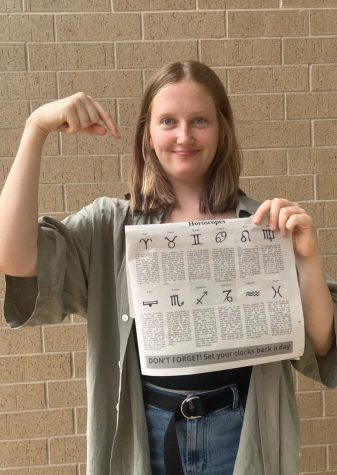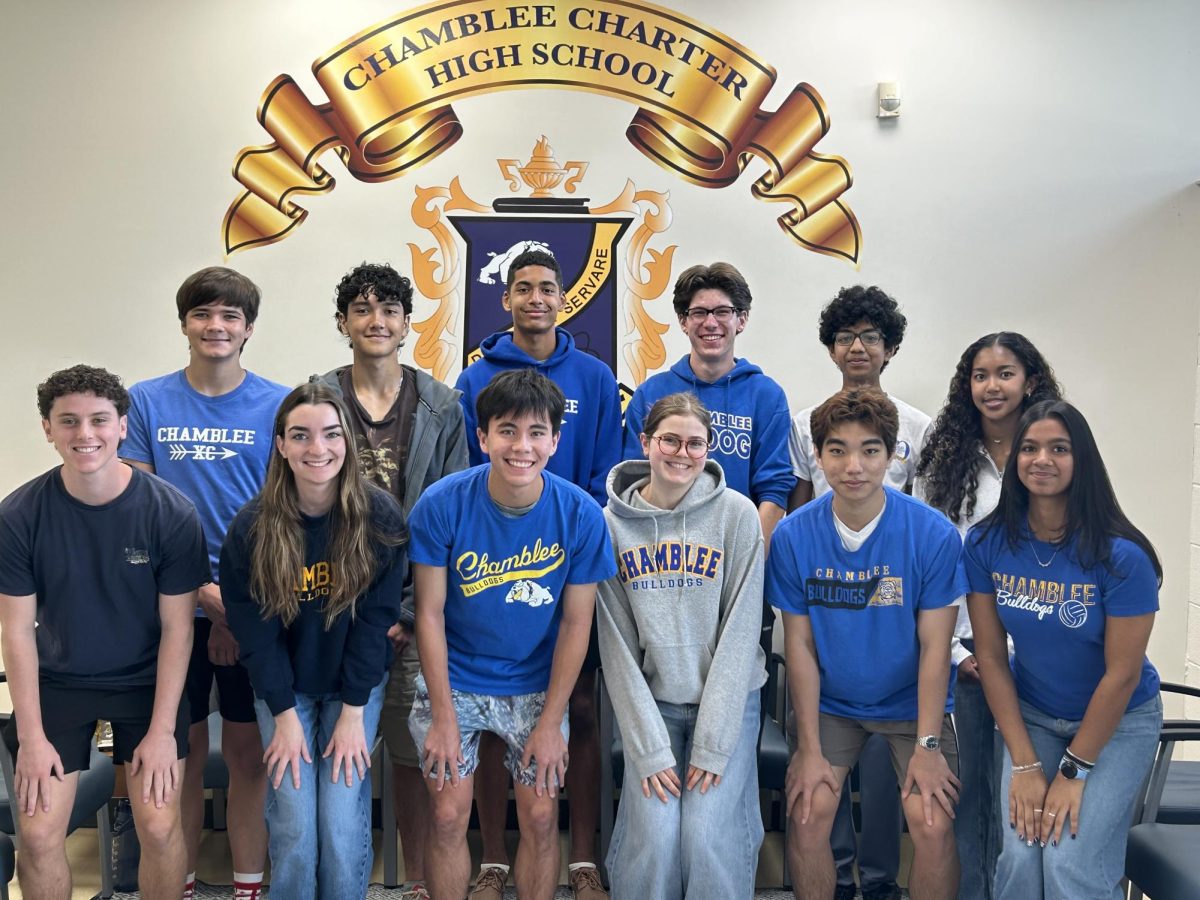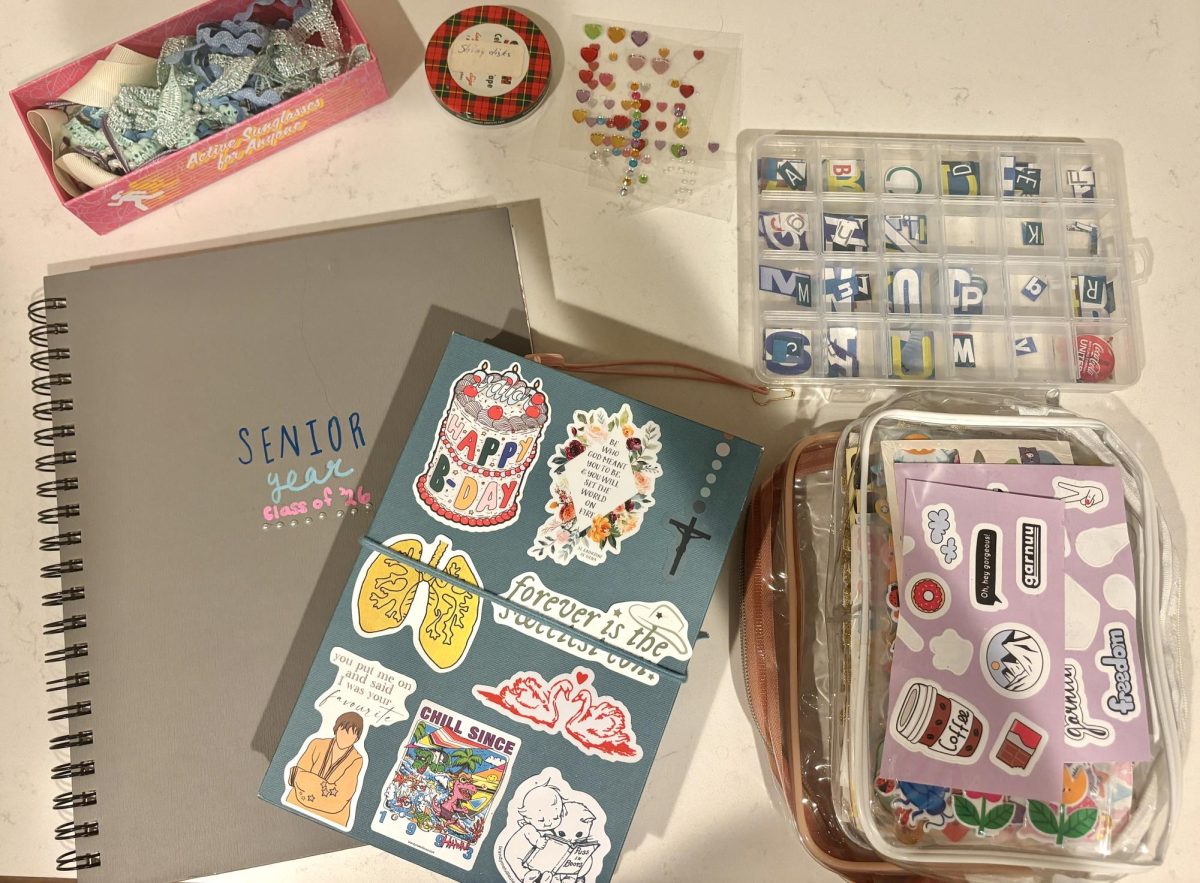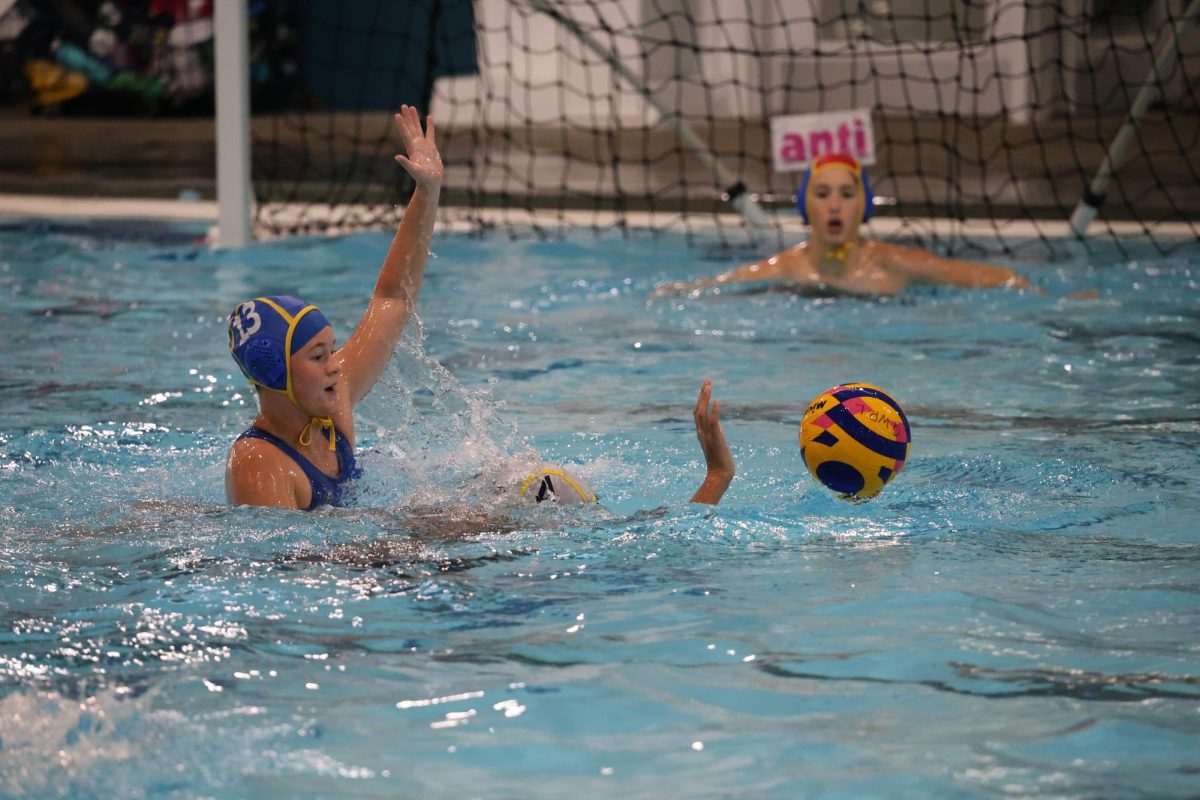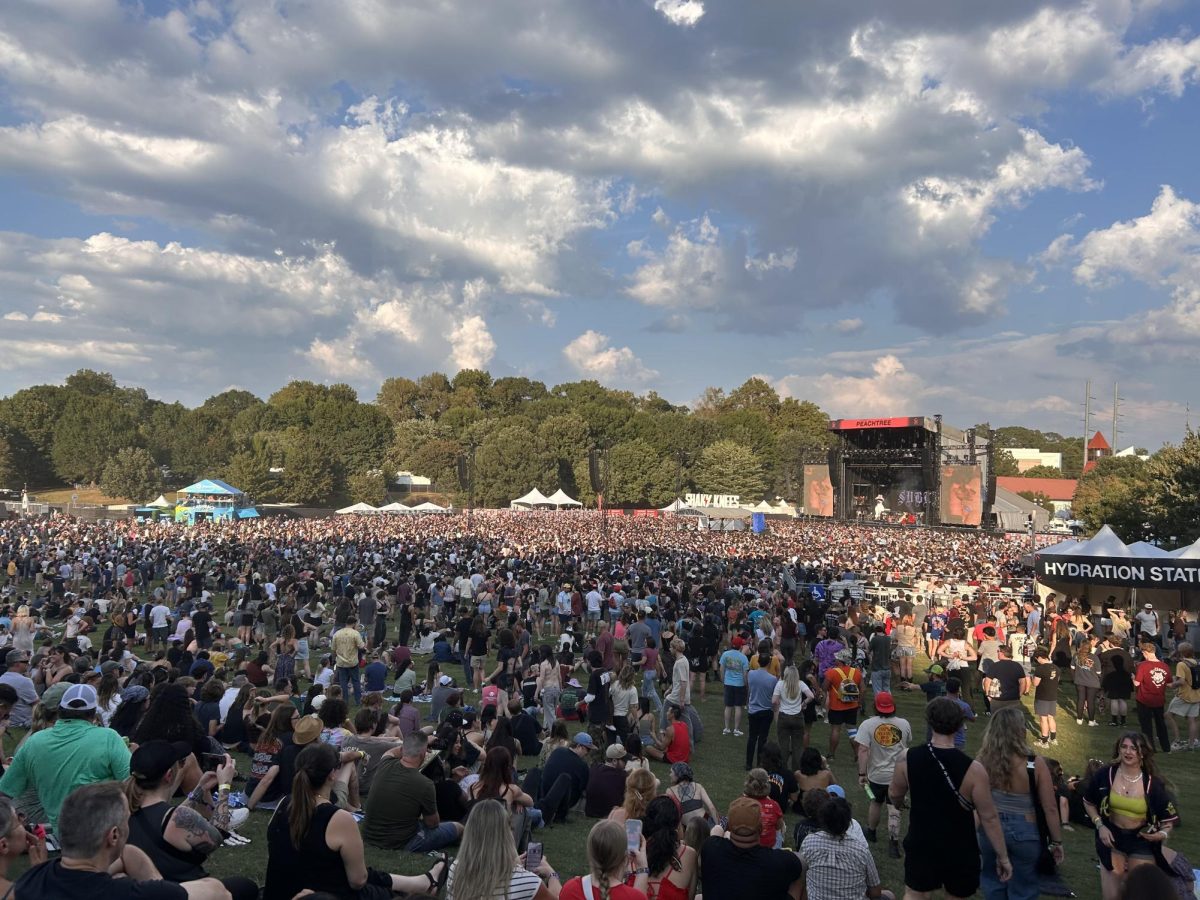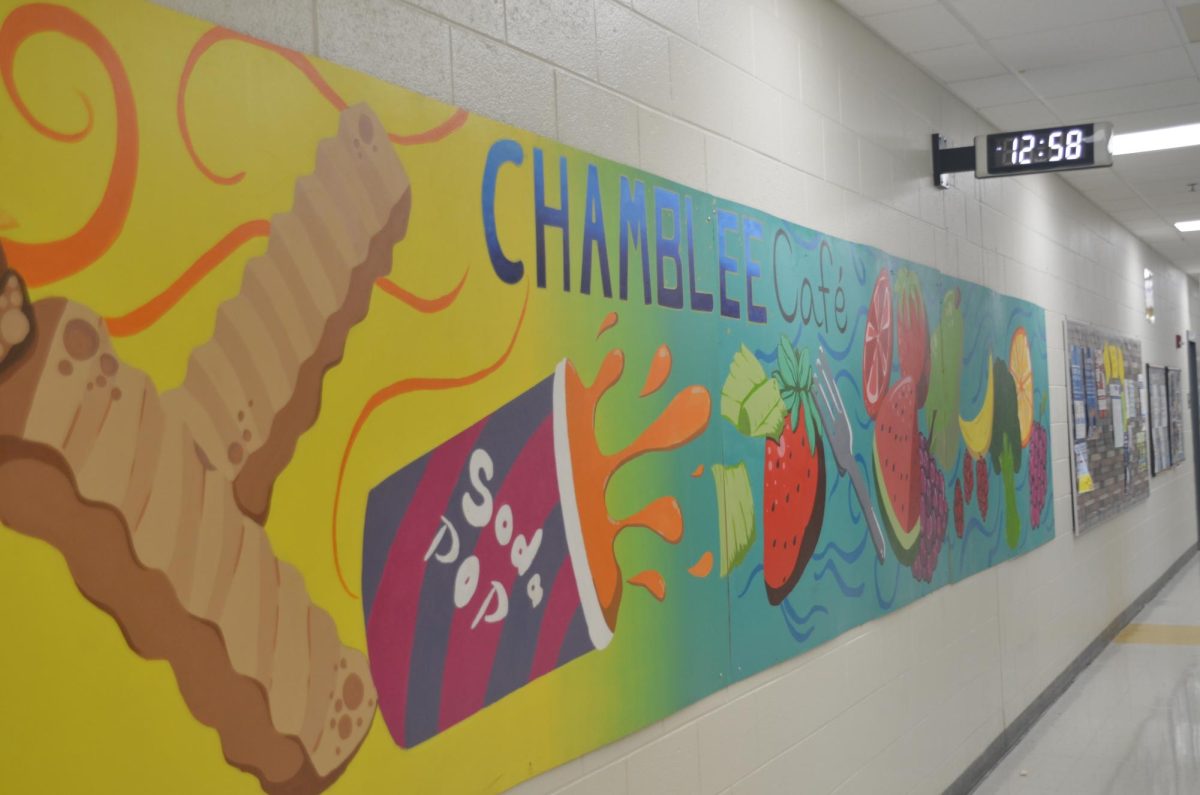Chamblee Announces 2022 National Merit Semifinalists
Photo courtesy of Ashika Srivastava
Chamblee’s National Merit Semifinalists
November 11, 2021
Chamblee has always been a school that awards numerous students as National Merit Scholarship semifinalists. And despite the unusual test-taking scenario with COVID, this year was no different.
The National Merit Scholarship Corporation recognizes some 50,000 students of the 1.5 million who have high scores on the PSAT/NMSQT they take in their junior year of high school. Out of these, the top one-third qualify for a semifinalist spot, organized by the top scorers in each state. 15,000 of the 16,000 semifinalists qualify for a finalist spot. 7,500 of these finalists receive a scholarship.
This year, Chamblee had 17 of its students recognized as National Merit semifinalists: Sanjeev Anand, Eric Baker, Adam Brock, Anne Cooke, Avaye Dawadi, Rajan Karsan, Willow Kleinfelter, Stiles Logan, Owen Oertell, Andrew Pietkiewicz, Shrita Reddy, Thomas Rice, Aaditya Saha, Matthew Tubbs, Caeley Woo, Jason Wu, and Kaiyan Xu.
A student’s PSAT/NMSQT score is what qualifies them for the scholarships, so the PSAT was the experience that made it happen for these students.
Taking the PSAT was different this year because it was the first time for a lot of students to be back in school. Rajan Karsan (‘22) enjoyed the experience.
“It was such an interesting experience just like driving to school for the first time because nobody was able to drive sophomore year. And just seeing all these new faces, trying to remember names,” said Karsan. “It was just nice seeing teachers, the proctors. I think the school did a good job of COVID safety as well.”
Senior Anne Cooke (‘22) also qualified as a semifinalist, and she agreed that the testing experience was different.
“It was a super long line to get into the school because it was during COVID,” said Cooke. “It was interesting because it was like the one of the first times I’d been back in a building with a bunch of people.”
Testing during the pandemic harmed some people and helped others. Stiles Logan (‘22), another semifinalist, used the benefits of quarantine to his advantage.
“I don’t think [COVID was] really an issue for me. If anything, I spent more time studying for [the exam], because I had more time on my hands,” said Logan.
For many, the PSAT was also the first major standardized test taken with masks on since the start of COVID, which brought its own difficulties. Eric Baker (‘22), felt the mask prevented him from doing his best.
“[The mask] was really distracting. It didn’t add stress or anything, but I would be halfway through doing a math problem and I would be like, ‘Oh my God, my nose is itchy, but I can’t do anything about it,’ or like, ‘Oh my God I’m gonna cough, but I can’t cough, it’s COVID.’” said Baker. “I would just get halfway through a question or a reading passage, and I would have to start over again.”
Shrita Reddy (‘22) expected the mask to affect her testing experience more than it did.
“I was worried because since we’re at home so much, I never had long time periods [in a mask]. I was like, ‘Oh my God, am I gonna be able to [deal with it]?’ [But] it was fine. I didn’t even notice it,” said Reddy. “Looking back, it’s stupid because you’re in your mask all day. But I remember being a little bit worried for that, but then it ended up that I was fine.”
Despite these changes, the PSAT still captured the normal testing experience.
“It was a pretty standard PSAT: got up really early in the morning, went [to school], did my best, tried to get as many answers right as I could,” said Logan.
Reddy followed her usual testing day ritual even in the strange year.
“I remember I had pink lemonade because sugar is good for your brain. And I had a bagel from Einstein Bagels in the morning because I always eat bagels before big tests,” said Reddy.
Some semifinalists took the test in hopes of qualifying for the National Merit scholarship, while others were just trying their best in preparation for the SAT and ACT.
“I think, at that time, I was working on my ACT scores as well. So I thought it would be good practice because any sort of test kind of just helps you improve. I always thought about [National Merit], but in the end, I wasn’t gonna be discouraged if I didn’t get it. But I always knew my goal was to get it because that’s why you take it junior year, besides the practice for the actual SAT,” said Karsan. “But if I didn’t get it, it wouldn’t be the worst in the world because there’s always gonna be something else besides a test grade.”
On the other side of that scale are the people who took it solely for National Merit.
“I was definitely taking it just hoping to get National Merit,” said Cooke.
Several students did not take the test just for the semifinalist status but were happy to have received it.
“My PSAT scores in middle school and then freshman and sophomore years were pretty high, so I knew it was a possibility,” said Baker. “I didn’t take the test to become a National Merit semifinalist, but it is a benefit.”
After being notified of their semifinalist status, the students then applied to become finalists.
“It’s a pretty short application, actually. You fill out a little bit of personal information, you write an essay, […] and then you write a little bit about your activities,” said Cooke.
Because seniors were applying to colleges around this time, the application was not as challenging in comparison.
“I would have been intimidated at any other time, but because I’m also doing the Common App at the same time, it felt like it was a lot less stress than the Common App, so [it was,] ‘I’ll just do this as a break,’” said Karsan.
Reddy agrees that the finalist application process was not difficult.
“They have you write an essay, but I just took one of my college essays and put it in, so it wasn’t like a big project,” said Reddy.
Currently, the semifinalists have all submitted their finalist applications and are awaiting results.
“In February, we’ll find out if we’re finalists, and then in March we’ll find out if we got the scholarship,” said Logan. “And even just being selected as a semifinalist is a pretty big deal. It’s [at the] top of my resume and everything. It’s a pretty big honor, so hopefully it’ll help me out a little bit with college and all that.”
For some, the scholarship money is one thing, but the title is more significant.
“If you win, it’s 2,500 bucks, which is not a lot of money, but I feel like it’s more about the title and just being able to say that I did it,” said Logan. “So I’m putting a lot of work into it, even though maybe I could be putting the same amount of work into a $10,000 scholarship and maybe winning that. But this is a bigger deal for me.”
The honor of National Merit is esteemed, no matter how far you get, especially for Cooke.
“I mean, any money is helpful,” said Cooke. “I’m just proud of myself for becoming a semifinalist and feeling hopeful that my finalist application is going to be good. And it’s kind of not in my hands anymore, so we’ll see what happens.”
Reddy values the scholarship for another more personal reason.
“I did think it would be kind of cool if I got it because I feel like I’m perceived really stupid,” said Reddy. “Just [because of] the way I talk, the way I act. So I thought this could be a good chance to be like ‘Psych! I’m actually smart.’ [For me,] it’s more for the bragging rights.”
Lastly, the National Merit semifinalists offer some advice to future test-takers.
“I mean, just go in and take it. The worst thing to do is get in your own head. Study, but don’t obsess over it,” said Baker. “Just go ahead and do it, what happens happens, there’s nothing you can do to make it any better at that point.”
Practice tests helped a lot with timing and seeing how the test would be.
“Definitely practice tests online. If you look up “PSAT practice test,” that’s the best way to do it. Just run through a few,” said Logan. “And make sure you’re aware of how much time you have left, always make sure you’re timing yourself, staying within the amount of time that you have.”
Cooke agrees that taking practice tests was the best form of practice for her.
“I just found that doing practice tests, rather than little practice sections, was better for me, just to get used to the test,” said Cooke. “Give yourself plenty of time to practice in whatever way you need. Get a good night’s rest the night before, and just try not to feel super stressed out. If it turns out in your favor, that’s awesome. If not, it’s really not the end of the world.”
The main thing semifinalists want students to remember is that what happens happens, and it is okay whether or not they receive the scholarship.
“One test grade doesn’t define you, because everyone’s different. We don’t know what’s gonna happen, so we’ll just see how it goes,” said Karsan.

